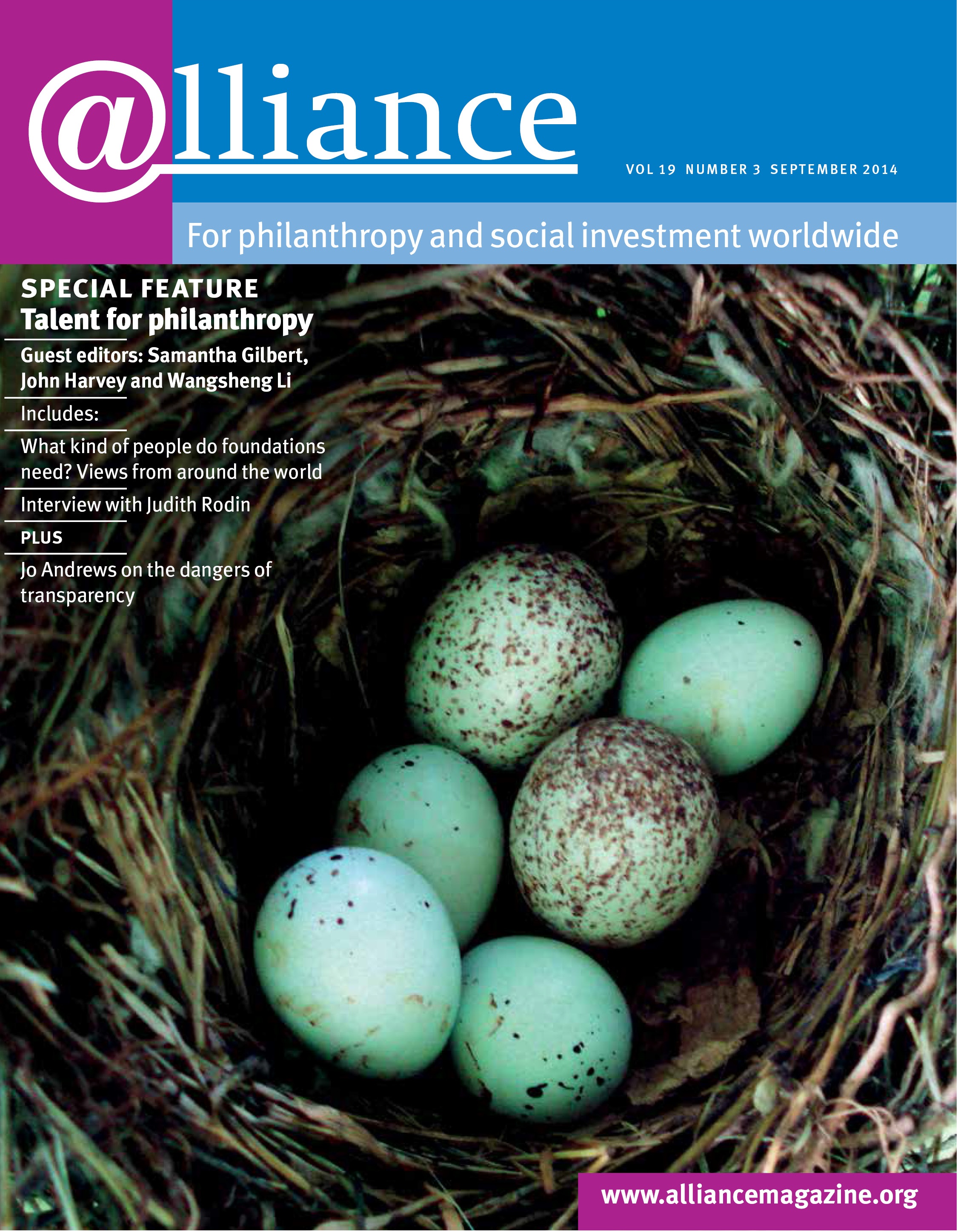Fifteen years ago, no philanthropic infrastructure existed in Africa. Philanthropy knowledge and skills were sought in the Global North. Today, according to a new report by Halima Mahomed,[1] the continent boasts more than 37 initiatives, at varying levels of development and of varying character and scope. The ripples from these initiatives are being felt in many ways. This article will highlight some of the areas where they have the potential to create much larger waves of change.
First, although the new infrastructure is helping to develop African – rather than external – notions of philanthropy, there is much more to do, particularly on informal giving. Though the majority of African giving is non-institutional, the new infrastructure has been developed primarily in response to the more ‘traditionally recognized’ institutional philanthropy. One of the biggest challenges is how to give more attention to strengthening informal philanthropy, as well as linking the formal and informal, in ways that add to, rather than dilute, the latter.
Second, the elements are not connected by any common agenda, though there is considerable interest in discussing how best to connect and, where appropriate, to combine their several agendas into a longer-term vision. Developing these practical connections, while still accommodating sectoral, geographic and ideological differences, can play a valuable role in allowing this sector to move up another level.
Finally, despite increased knowledge building about philanthropy within Africa, there is no dedicated space to reflect on the narrative, role and nature of African philanthropy; to develop context-relevant tools and models; to review the potential and limitations of practice and impact; and to strengthen the skills and capacity of philanthropy professionals. Such a space is a necessary precondition for guiding the future discourse and practice of giving in Africa.
[1] Supported by a grant from the Rockefeller Foundation.






Comments (0)